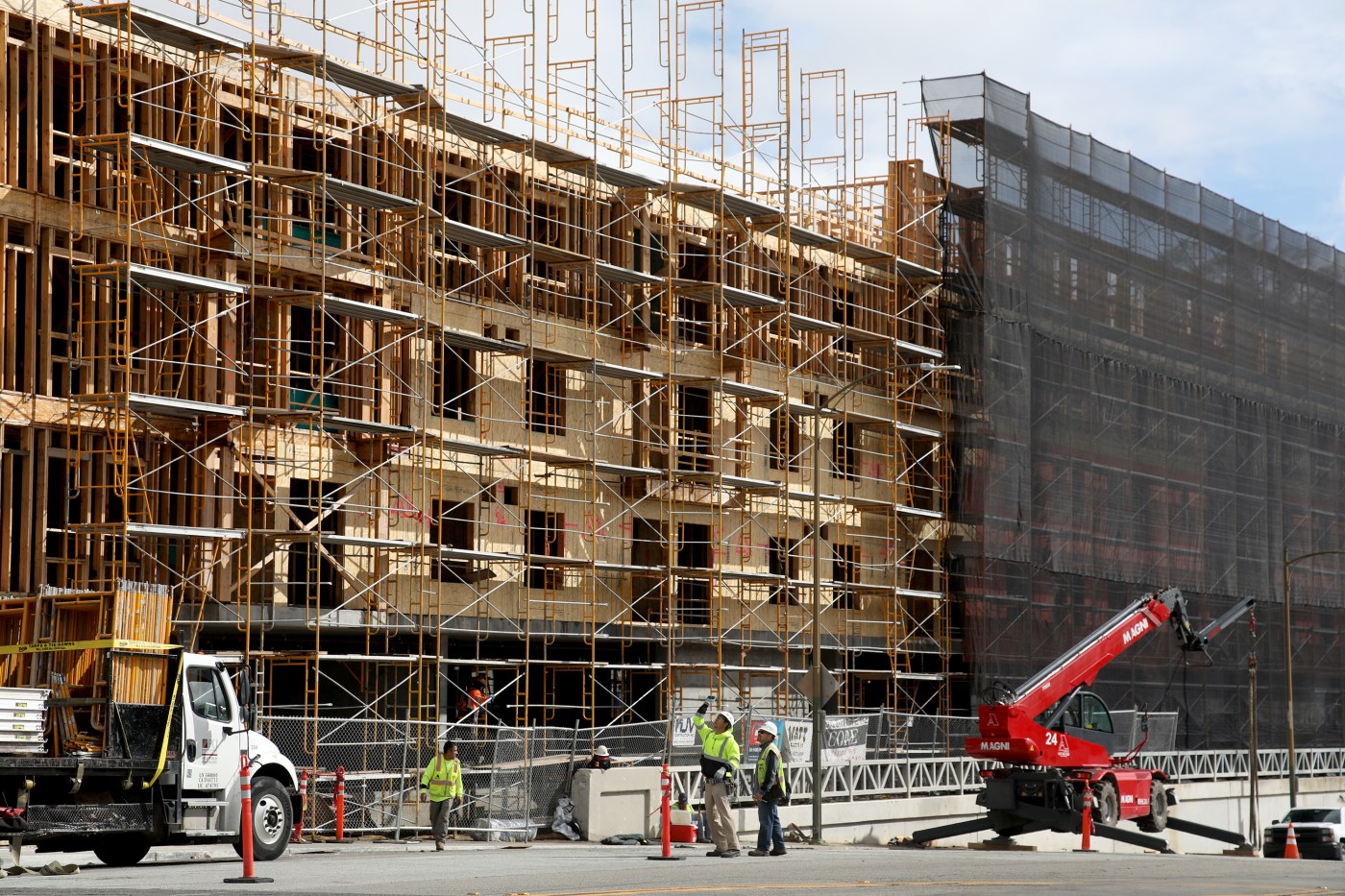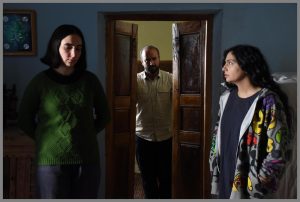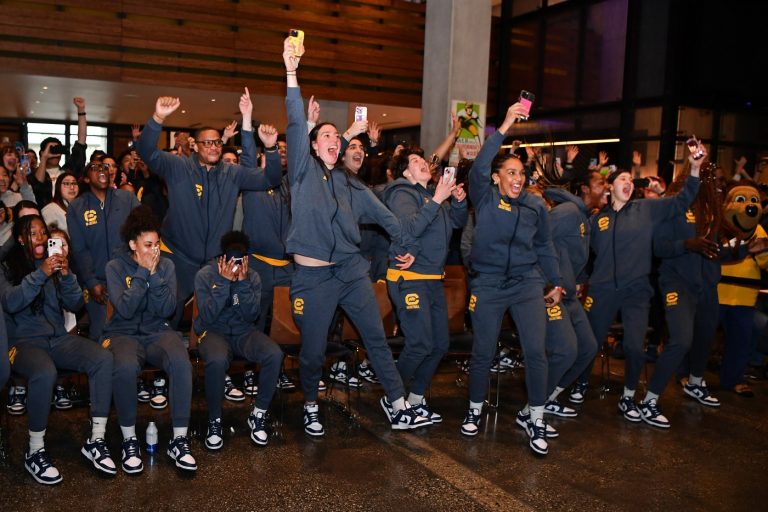After San Jose saw zero market-rate, multi-family buildings over 20 units start construction this year, city officials hope a temporary incentive program will help spur developers to put a few shovels into the ground at a time when the city desperately needs housing.
The City Council has approved a 50% reduction in construction taxes for the first 1,500 units of projects in designated growth areas that submitted complete applications by June 2022 and receive a building permit by the end of next year. The city will also apply a 25% reduction in those taxes for up to 8,539 units of eligible projects starting in 2026.
“I frankly would rather get the building into the ground, build the housing that we all agree is our no. 1 priority and have the recurring revenue to the city of property and sales taxes going forward,” Mayor Matt Mahan said. “I don’t think we should think of it as a loss because, frankly, we got nothing this year. Literally nothing.”
With high interest rates coupled with a rise in labor and material costs bringing commercial and resident development to a standstill, San Jose has turned to incentive-laden policies to help projects pencil out.
Along with rolling out office leasing incentives for new tenants, the city extended its downtown high-rise project, which offered a similar reduction in building and construction taxes for projects that obtain permits next year and receive a certificate of occupancy by 2029.
When city officials voted to extend the downtown program, they also asked staff to look at other programs San Jose could apply elsewhere to help “unblock” residential projects.
“The intention of this recommendation is really to signify to the market that San Jose is fostering a pro-housing development and wants to encourage that,” said Blage Zelalich, deputy director of the Office of Economic Development and Cultural Affairs.”
The program is not expected to serve as a silver bullet as city staff hope the incentives prompt the movement of a few projects next year.
As part of the regional housing needs assessment, or RHNA, San Jose must add 62,200 units by 2031, which averages 7,775 units per year. However, the city has struggled to keep up with demand as the housing crisis persists.
Over the past few years, the city has seen an average of one multi-family building begin construction per year. A report on the General Plan’s performance during the last fiscal year showed that San Jose only issued permits for 2,666 residential units, including ADUs.
“You’re 5,000 units short just last fiscal year, so I don’t know how you’re ever going to meet state law to produce enough housing if you don’t take every action within your power to incentivize and induce housing production in our city,” land-use consultant Erik Schoennauer said.
An analysis completed by city staff found that 35 projects, including 7,357 market-rate and 2,276 units, could qualify for the incentives.
Steve Lynch, director of planning and entitlement at Sand Hill Property Co., said that a few of his employer’s projects qualified, including a 100% affordable housing development on Curtner Avenue near Highway 87 that has completely stalled out.
“We’ve done everything we can do to find dollars, and there are just no dollars available, so (if there is) anything that can be done to help stick some of these affordable projects, we need to do that here tonight,” Lynch said.
In addition to the reduction in taxes, the proposal will reduce park fees in North San Jose by nearly half and delay the payment of taxes until the receipt of a certificate of occupancy.
But while an increase in production is seen as positive, housing advocates — including SV@Home, EAH Housing, PATH and Abode Housing Development — raised questions about some of the finer details in the proposal, including waivers of in-lieu fees for projects that provide at least 5% of units for affordable housing. Those fees, they said, are crucial to funding other affordable housing projects.
“We urge the City Council to reconsider completely waiving (inclusionary housing ordinance) fees for these projects without requiring the inclusion of units affordable to the city’s low-income residents,” a letter from the group states. “We believe market development can be incentivized without abandoning public value. Affordable housing delivers significant community benefits, including stability for underserved residents and long-term economic impacts. Preserving local funding mechanisms like IHO fees is essential to ensuring these homes continue to serve the populations most in need.”
Related Articles
San Jose officials intensify quest to clean up blighted historic site
San Jose green homes and tech hubs project due to launch in 2025
Berkeley forgoes air rights to move forward Ashby BART development
Housing project in San Ramon at Chevron’s old HQ comes into view
After public ire, Morgan Hill city council approves review, zoning for 320-home development
District 5 Councilmember Peter Ortiz cast the lone dissenting vote, noting that the extension of the downtown high-rise program and incentives given to developers had yet to bear fruit.
“I don’t want to throw spaghetti at the wall continuously and put things into law that may or may not help our situation,” Ortiz said.












